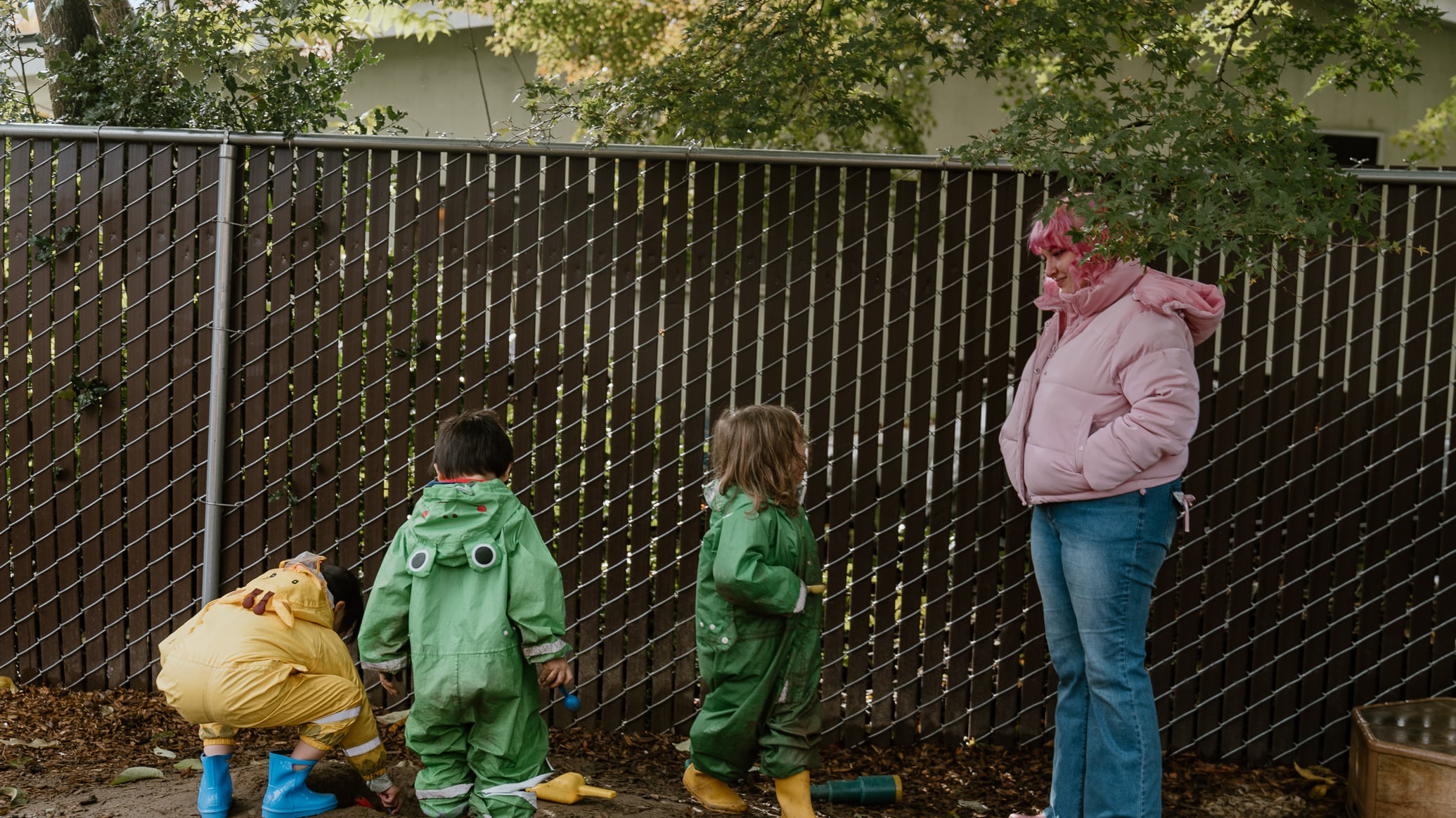Preschool for All quintupled its advisory groups this academic year, adding four new volunteer panels to its ranks.
Two of those new bodies, a provider advisory group and a parent advisory group, have yet to hold their first meetings, but are meant to serve as avenues for community engagement. The other two are more narrow in membership: a technical advisory group and a program advisory group (otherwise known as TAG and PAG) that are meant to develop recommendations for the Board of County Commissioners as they consider any changes to the tax policy.
The number of advisory bodies is a dramatic expansion from the one Preschool for All Advisory Committee that has served the program since October 2021. (Its rotating members are pulled from the broader community and appointed by County Chair Jessica Vega Pederson’s office, and it meets every few months.) But the increase comes as the county recognized a need for robust community input, says county spokesman Ryan Yambra.
“Preschool for All is massive in scope,” Yambra says. “The number of advisory groups is intentional because there is so much to consider as leaders scale the program towards universal coverage, including sustainable funding, growing and supporting providers and the living wage workforce required to reach our goals, and remaining responsive to the needs of parents.”
Vega Pederson’s office is also responsible for the appointment of members to both the TAG and the PAG. The TAG—a seven-member group of economists, a demographer, and policy advisers—is meant to “guide and evaluate the financial integrity” of the Preschool for All program, according to the county’s website. That group convened under political pressure this summer, following concern from Gov. Tina Kotek that the tax on high earners that funds the program was imperiling Oregon’s tax base. (The program is funded by a tax on 1.5% of income over $125,000 for single filers or $200,000 for joint filers, and an additional 1.5% on income over $250,000 for single filers or $400,000 for joint filers.)
In a June 10 letter to Vega Pederson, Kotek called for the chair to expedite the TAG’s meeting schedule to provide taxpayers relief by tax year 2026.
Through a series of meetings in July and August, the TAG tried, but ultimately failed, to deliver any conclusive recommendations on indexing the Preschool for All tax. That, combined with heat from Preschool for All advocates who gathered en masse to oppose any cuts to the tax, has meant the program’s financial structure has seen no changes thus far.
Despite its paralysis on issuing a recommendation in August, the TAG is still active. It is expected to explore a number of economic and demographic questions in the coming months, including tax policy proposals and examining how universal preschool impacts Multnomah County’s economy. It will also mull questions related to a planned 0.8% increase in the tax, which was delayed last year to follow Kotek’s orders.
In the months to come, the TAG will weigh different economic scenarios and how they will affect the program’s revenue. But August’s indexing debate has already revealed tensions among its members, who hold differing views on whether the tax is driving out high earners and about how sustainable the program’s revenue stream is.
This month saw the introduction of the PAG, which will consider any consequences changing the tax would have to Preschool for All’s programmatic operations. It has eight members, including providers and those affiliated with school districts and nonprofits. It is expected to work in close partnership with the TAG, evaluating revenue scenarios and reporting back on what it would mean for people executing the work. Yambra adds the group will also consider how population forecasts may affect the program’s timeline to universality.
There are already questions cropping up about how these two groups will work together in practice.
“[Something] I wonder about is if [TAG’s] scenarios primarily end up looking at revenue reductions and the PAG is then bringing up research questions that look at revenue increases, I do worry about the disconnect between those groups,” Brooke Chilton-Timmons, the strategy and communications manager for the county’s Preschool and Early Learning Division, said at a Sept. 10 TAG meeting.
“How I’ve typically thought about the PAG is that they’re really responsive to what the TAG is doing, that you all are saying these are the scenarios that we are considering, and then the PAG is saying, well, this is what that could mean for the program,” Chilton-Timmons added.
The county’s Preschool and Early Learning Division is responsible for appointing the members of the other two community engagement groups, the provider and parent advisory groups. Preschool providers have long called for the formation of their own group, with many citing challenges with working with Preschool for All. Thirteen members—some affiliated with Preschool for All, others not—were selected in August, according to emails reviewed by WW, though it does not appear that the group has gathered publicly yet.
Details about the parent advisory group are not yet available on the county’s website. Yambra says it will be a “group of past, current and prospective parents and legal guardians from the PFA community who help ensure the program effectively serves the needs of all families.”

